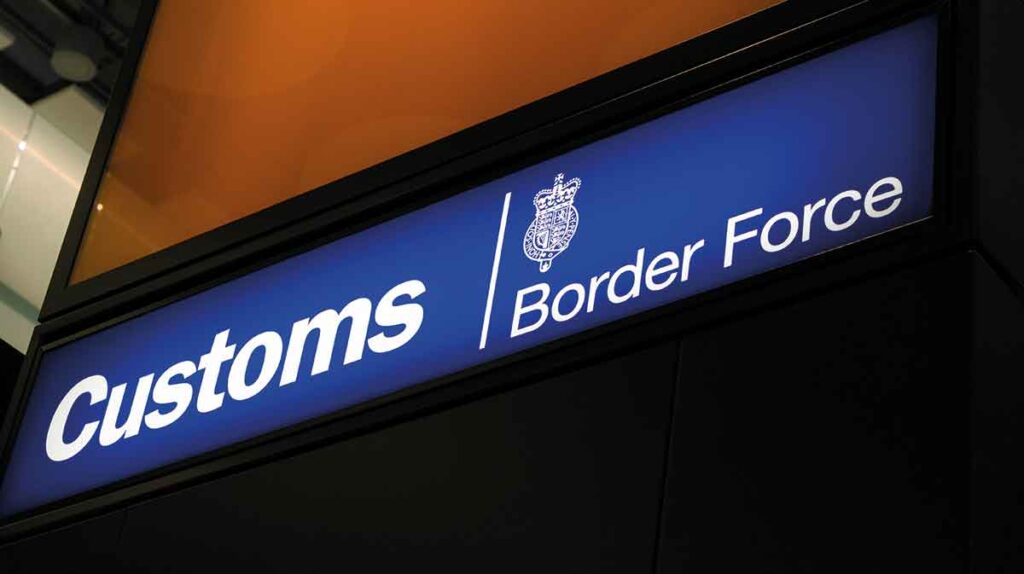The British Meat Processors Association (BMPA) has called on the government to take further steps to keep foot-and-mouth disease out of the country, including a blanket ban on all meat and dairy products from the EU and the provision of disinfectant mats at points of entry.
The government responded to the discovery of FMD in a herd of water buffalo near Berlin by banning the commercial import of cattle, pigs, sheep, deer, buffaloes and their products such as meat, and dairy from Germany. In addition, it is now also prohibited for travellers to bring unpackaged meat and dairy products into the country from anywhere in the EU, with all products (packaged or unpackaged) being prohibited from Germany.
BMPA chief executive Nick Allen warned that, in practice, such restrictions will be difficult to police and risk not being properly followed by travellers who may not realise that a packaged product bought in France, for example, actually originated in Germany.
“A simpler and more effective way to stop travellers bringing back potentially infected product would be to impose a temporary blanket ban on all meat and dairy products from the EU, coupled with a system of random spot checks,” he said.
“By allowing people to bring back some but not all meat and dairy products from the EU, we are relying on individuals to determine the origin of those products, which may not be immediately obvious.”
The Association of Independent Meat Suppliers (AIMS) has also called for the UK government to implement a comprehensive ban on all personal imports of meat products derived from pigs and ruminants.
“Personal imports of meat products continue to enter the country unchecked, particularly through our airports. This loophole presents a significant biosecurity risk, as both FMD and ASF viruses can survive in fresh and cured meat products for extended periods, remaining highly infectious,” said Dr Jason Aldiss, AIMS’s new executive director.
Vehicle and people risk
But all this could be in vain if we don’t address a potentially bigger threat, according to the BMPA. It pointed out that FMD can also be easily spread via soil and mud on people’s shoes, as well as on the tyres of cars and trucks that have been in an infected region. But currently, we have no measures to stop the disease getting into the UK this way.
Mr Allen said it was ‘encouraging’ that further testing in Germany has yet to find any more cases, although the origin of its outbreak remains unclear. He would like to see tougher measures employed at UK borders to combat this threat.
“While prohibiting the importation of at risk products from Germany is essential, until we learn otherwise, we have to assume that there is a risk that this disease could have already moved outside the area of the original outbreak and, potentially beyond the borders of Germany,” he said.
“On that basis we should treat all movements from the European Union – both of individuals and vehicles – as a potential risk and take precautions such as disinfectant mats at all points of entry including ports, airports, Channel Tunnel and Eurostar.”
He said Britain is among a small number of countries that could implement such measures, being surrounded by sea.
Mr Allen highlighted an interview on Farming Today last week (listen from 9:31 minutes), in which Chief Veterinary Officer Christine Middlemiss admitted that, while the virus was first discovered in German water buffalo, it’s not yet known where it came from or where it’s since spread to.
She said that the buffalo tested positive, not just for the virus, but also for antibodies, which suggests they’d been infected for some time before they died.
“This means that people and vehicles moving in and out of the area could have been unwittingly spreading the disease for some time,” he said.
Border checks
Farming and meat industry bodies, including NPA, NFU, BMPA and AIMS have also called on the government to ensure proper checks are in place at points of entry to ensure bans on meat products are being enforced.
“Germany’s domestic market is going to come under huge pressure, so some unscrupulous people might be seeking alternative markets, as has been the case in Romania. It is also important that the ban is properly communicated to the public,” NPA chief executive Lizzie Wilson said.




